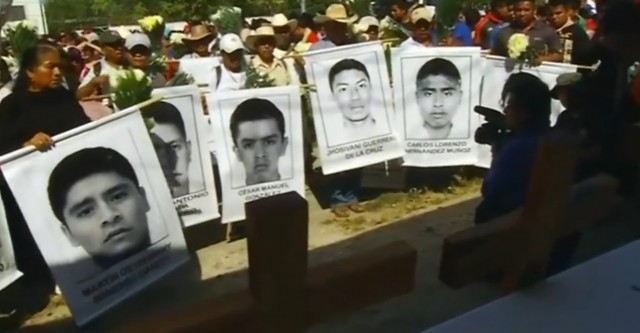
Latin America: Week in Review, Mexico, North America
Mexican Attorney General Officially Declares 43 Missing Students Dead
January 28, 2015 By Staff
Top Story — Evidence in the case of the 43 students missing from Iguala, Mexico, since Sept. 26 conclusively proves that they are dead, Attorney General Jesús Murillo Karam announced on Tuesday. Murillo Karam’s statement is unlikely to quash suspicions held by the students’ relatives, many of whom suspect that the federal government is seeking a quick solution to the mystery of the students’ disappearance.
“The evidence allows us to determine that the students were kidnapped, killed, burned and thrown into the river,” Murillo Karam announced during a press conference on Tuesday.
The state’s theory of the crime holds that the students were detained by members of local drug cartel Guerreros Unidos after being confused for members of a rival gang. The students were killed and their remains incinerated in a garbage dump in the town of Cocula, according to Murillo Karam, then disposed of in a river nearby.
The state’s conclusion was based on 39 confessions, 386 statements provided to police, 16 raids and 487 forensic examinations, which included tests conducted on samples of gasoline, diesel and steel retrieved from the location where the students were reportedly incinerated. Murillo Karam said that the remains found in the river contained samples from the dumping ground where the students’ remains were supposedly incinerated.
The attorney general denied that the federal army had any knowledge of the attack on the students, or that they intervened. In December, Proceso magazine reported that it had uncovered evidence of the army’s involvement in the attack.
Parents of the missing students have long expressed doubt over the state’s official theory. The Argentine Forensic Anthropologists, hired by the parents to conduct an independent investigation, said on Sunday that the evidence linking the charred remains to the students is inconclusive. The Austrian laboratory in Innsbruck that studied the remains was able to make only one positive identification, later announcing that identifying any other students would be impossible.
The students’ relatives have expressed their hopes of still finding them alive.
To date, 99 people have been arrested in connection to the students’ disappearance, including the mayor and first lady of Iguala.
The students’ disappearance set off months-long protests in Mexico, the latest of which saw thousands take to the streets on Mexico City on Monday night.
Headlines from the Western Hemisphere
North America
- Joaquin “El Chapo” Guzman, the Sinaloa drug cartel leader who was Mexico’s most-wanted before his capture last February, will not be extradited to the United States, but instead will complete his sentence at a maximum-security facility near Mexico City.
- Obama’s executive action on immigration reform included measures that would further militarize the U.S.-Mexico border, according to a piece in NACLA, adding billions of dollars worth of border patrol agents, advanced technologies and barriers to the region.
- In an effort to combat its obesity epidemic, Mexico is installing 30 motion-sensitive machines that will dispense free subway tickets to any commuter who completes 10 squats.
Caribbean
- Dominican President Danilo Medina recommended his country ease its total ban on abortions to allow exceptions for cases including rape, incest and mortal danger to the mother, but despite the policy shift, access to legal abortions will still remain an obstacle for Dominican women, according to the Thomson Reuters Foundation.
- Access to clean water and sanitation are two major elements still lacking in efforts to redevelop Haiti, argues a U.N. representative in The Huffington Post, saying that Haiti’s cholera epidemic now provides an opportunity to focus “on durable solutions for water and sanitation.”
- Puerto Rico is expanding its tax incentive laws in order to convince successful Puerto Ricans who have emigrated from the island to return, despite the island’s bleak economy.
Central America
- The Guatemalan Journalists Association warned that in anticipation of elections, journalists are increasingly threatened for voicing their opinions or critiques of politicians, and violence against journalists is often met with impunity.
- Lower costs of living, landscape and warm weather are luring more people from the U.S. to retire in Latin America, with the number of Americans receiving social security checks in Panama up 112 percent from 2005.
Andes
- Members of Venezuela’s ruling party on Tuesday condemned accusations that National Assembly President Diosdado Cabello is a drug trafficker, made by his former chief bodyguard who fled to the U.S. on Monday.
- Venezuela also pushed back against calls by Colombia for the release of jailed opposition leader Leopoldo López, a shift in policy that came after a foreign delegation including Colombia’s former president was denied access to López over the weekend.
Southern Cone
- Jewish groups in Argentina staged a boycott on Tuesday of President Cristina Fernández’s Holocaust Day event in protest of her handling of the death of a federal prosecutor, who accused her of protecting the perpetrators of a 1994 bombing of a Buenos Aires Jewish center.
- São Paulo may see water rationing that cuts service to two days a week if a historic drought doesn’t end soon, the company that supplies water in the city warned.
- Just hours after the lower house of Congress passed her first set of education reforms, Chilean President Michelle Bachelet on Tuesday announced a second phase of proposals that would federalize public schools and make public universities free.
Image: BBC, screenshot
Subscribe to Today in Latin America by Email
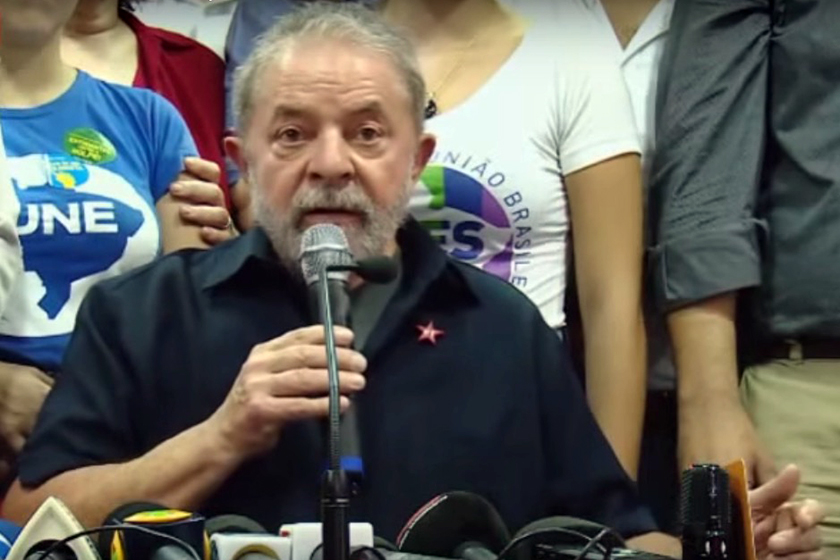
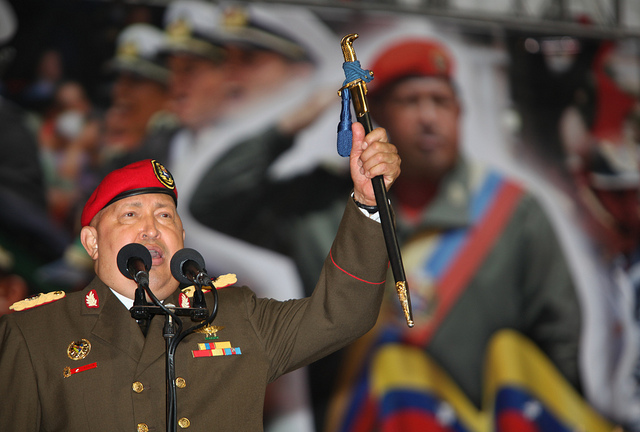
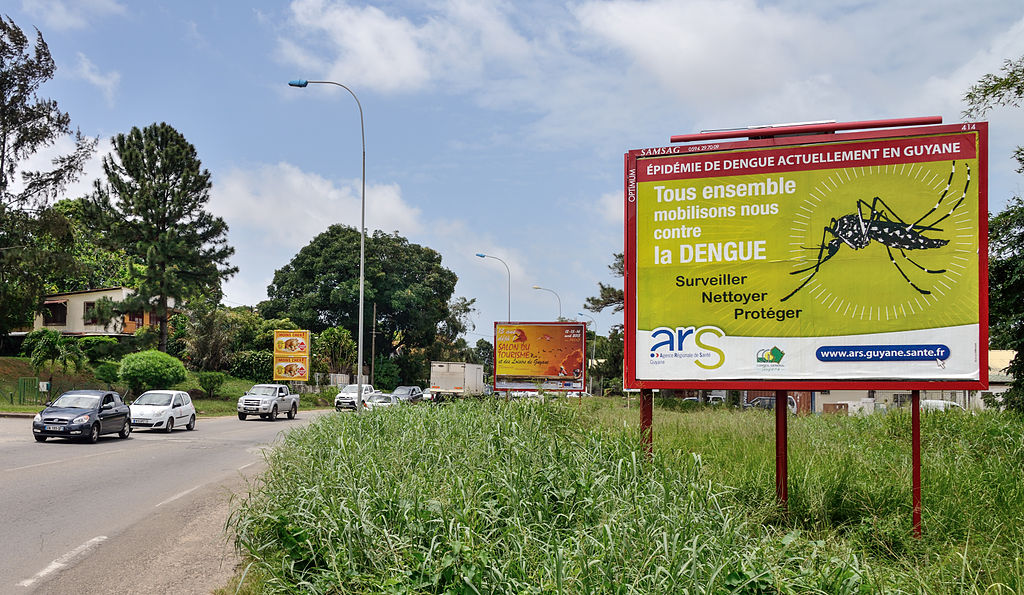
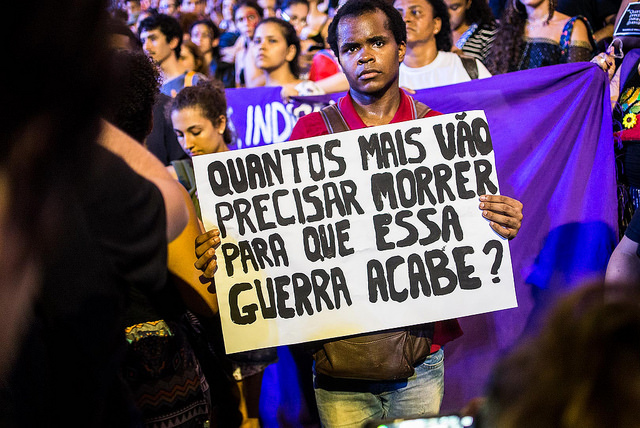
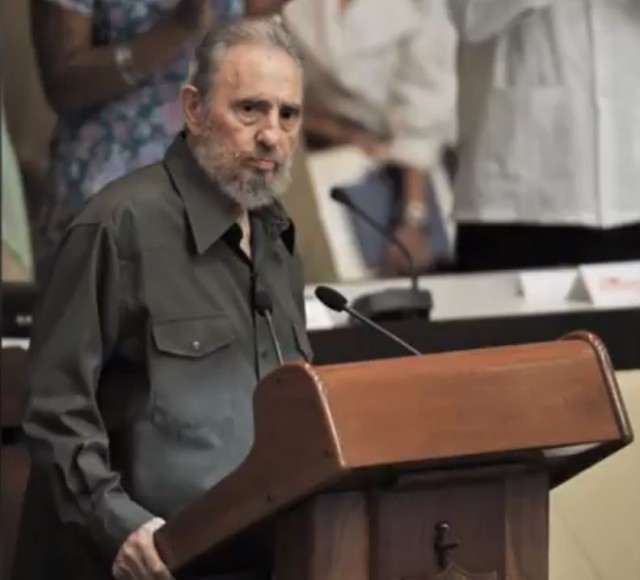
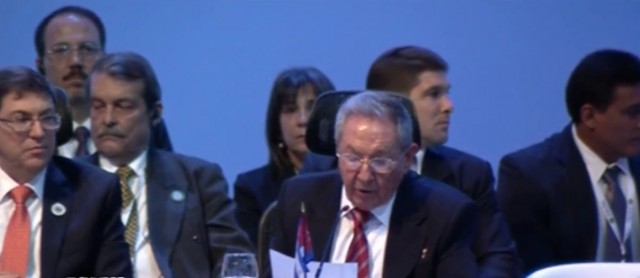
1 Comment
[…] prove that the students were murdered and their bodies burned in a trash dump — comes less than two weeks after Mexico’s attorney general officially declared the students […]
Comments are closed.